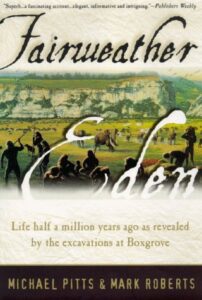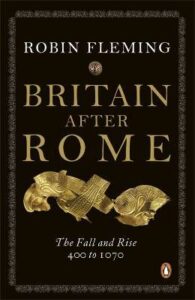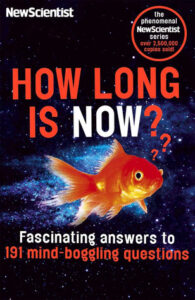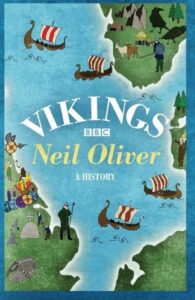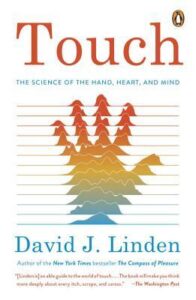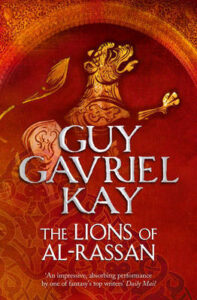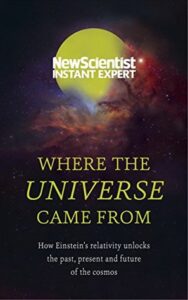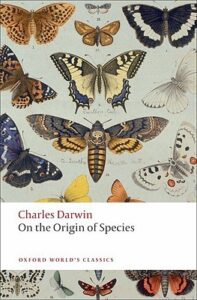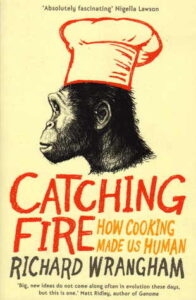 Britain AD, Francis Pryor
Britain AD, Francis Pryor
From my perspective, speaking as an English Lit postgrad who concentrated heavily on Arthurian and medieval literature, Britain AD has two main weaknesses. The first is the fact that Pryor doesn’t understand or attempt to engage with the shift in language to form English. He suggests there is no reason to suspect mass migration of Angles and Saxons into the UK, regardless of accepted work by people like Luigi Luca Cavalli-Sforza into the way population genetics tends to show that language, identity and genetics move together.
Secondly, he doesn’t know the subjects he’s talking about nearly well enough. I’d be happy to defer to him on the archaeology of King Arthur, but when it comes to the textual history, I know my stuff — and Pryor has enormous gaps. For example, he speaks of Sir Thomas Malory introducing the ‘Holy Blood’ aspect of the Grail legends… heedless of the fact that Robert de Boron pre-empted Malory by two centuries. (And possibly the Vulgate cycle did too — I don’t have my copies handy to check and I don’t trust online sources to steer me right!) He also utterly ignores the existence of the Saint’s Lives that mention Arthur and the Welsh folk tales.
These might not be important to the way Pryor views Arthur, but I think it’s always been clear that the Arthurian legends are more fiction than fact — so if you’re going to talk about them, you really need to understand the fictional aspects and how the legends developed. Pryor simply does not, and that puts all the rest of the book on shaky footing for me.
The same applies when it comes to understanding whether or not there was an Anglo-Saxon invasion or settlement or anything of the kind. He never manages to account for the rise of the Anglo-Saxon language. He talks about the spread of ideas instead, yet if that were the case, we’d expect to see much more influence from the Celtic languages on English in names for basic, everyday things. Why do we say “bread”, then, from Germanic brood, instead of bara? Why is it a “church”, from cirice, and not eglwys?
I’m not an expert on linguistics, but Pryor’s theories don’t accommodate the way languages work at all — and to be convincing, they must.
Then there’s the fact that he picks which genetic study he proves because, and I quote, “It also supports my own theories — which is an enormous point in its favour.” This may be intended as flippant, but still, that is not the way to critique studies, especially ones which are outside your area of expertise. You can’t pick which theories you like based on which one agrees with your own theory, or it becomes horrifyingly circular.
Where he speaks about archaeology, I don’t have the tools to criticise — and he is well known and well thought of, so I’m sure he’s at least along the right lines. But where it crosses things I do understand — genetics, linguistics, and most of all literature — I find Pryor’s grounding very shaky. I enjoy his writing, but can’t give him more stars than this because his thesis is just too questionable. And it really makes me question whether Britain BC was all that, although it was more deeply grounded in archaeology.
Rating: 2/5
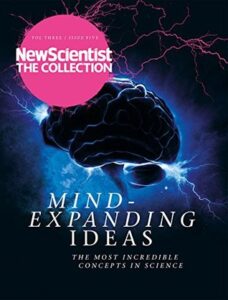 Mind-Expanding Ideas, New Scientist: The Collection
Mind-Expanding Ideas, New Scientist: The Collection
